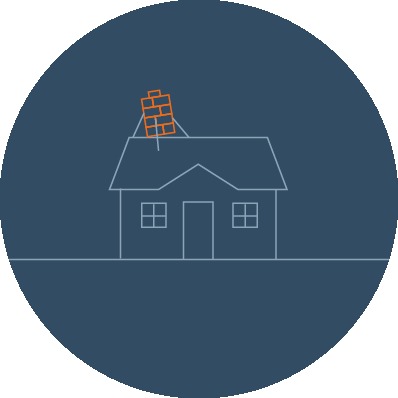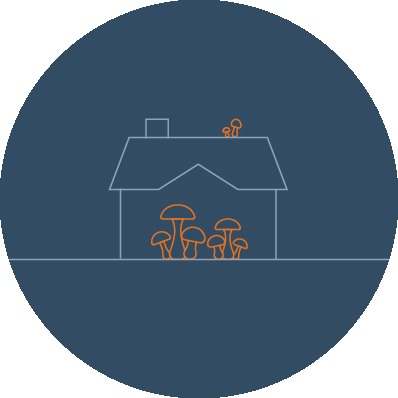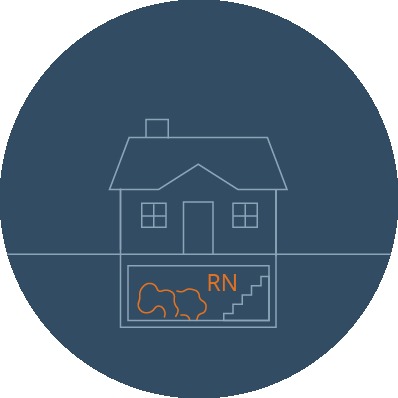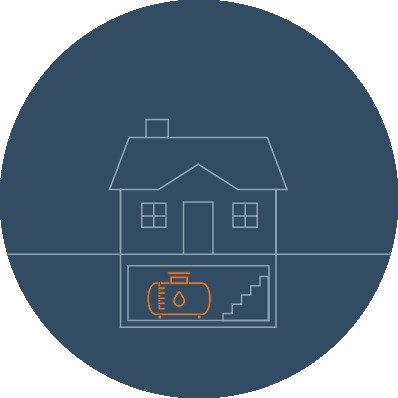What are the phenomena or particularities that may affect your real estate transaction?
Each property has its own history and specific features. During a real estate transaction, whether you're a seller or buyer, how can you be sure you are giving or getting a clear picture about the possibility, for example, that the property is affected by radon, pyrite, dry rot, or has a flood history?
Below is a non-exhaustive list of problems that may affect a property, as well as valuable tips to reduce the risk of legal action and make informed decisions. Keep in mind that the real estate broker who will assist you throughout your transaction must also meet his duties and ethical duties and obligations to ensure that your transaction goes smoothly and securely.
Property that has been flooded: The importance of being informed
Do you plan to carry out a real estate transaction involving a property that has a flood history? Whether you're a seller or buyer, certain precautions must be taken. Real estate brokers have access to an information toolkit about properties that have been flooded. It contains a wealth of details describing the procedure to follow in order for brokers to properly protect the parties to a transaction in all circumstances.
This article presents important elements to keep in mind. It provides answers to two questions, in the case where, following an accepted Promise to purchase, the property has sustained damage due to flooding or a natural disaster. Thus, is it possible for the seller to go forth with his transaction and, on the contrary, could the buyer withdraw, if he wants to?
Have your fireplaces, stoves and chimneys inspected!
When selling an immovable, whether you're a seller or buyer, you should not take for granted that the stove, fireplace, or chimney of the property meets the current standards of both the insurer and the municipality. Hence the importance of an appropriate verification and inspection.
Artesian well: Is the water drinkable?
When a transaction concerns a property that is not serviced by a municipal water system or equipped with a wastewater treatment system, financial institutions usually want assurances that the water of the artesian well is drinkable, or the system is up to code before authorizing a loan.
Did you know that it is the real estate broker's responsibility to verify compliance and obtain the documents that financial institutions require before authorizing a loan?
Pyrite: Verifications are required
Did you know that pyrite, this iron sulphide molecule present in the stone fill used in construction can oxidize and produce a sort of white powder that swells, causing, among other things, the slab to lift and producing cracks in the foundation and partitions? These problems may appear several years after construction.
Real estate brokers engaged in a transaction involving a property located in a high-risk area will verify if a pyrite test may have been done in the past or will recommend proceeding with such a test to ensure that the buyer has a realistic picture of the house he wishes to purchase.
High-risk areas for pyrite have been identified.
Dry rot: What you need to know
Serpula lacrymans – commonly known as dry rot and often referred to as a “building cancer”– is a destructive fungus that attacks timber in residential buildings, leading the wood to decompose and decay. Dry rot tends to develop in common types of woods. It is most often found in damp, unventilated areas such as basements and crawl spaces.
Dry rot is a concern primarily because of the extent of the damage it can cause to a building, usually requiring major repair work. It can also have an impact on the real estate transaction.
Radon: A gas that can affect your transaction
Radon is an invisible, odourless, colourless radioactive gas that is produced naturally by the breakdown of uranium in the environment. In outdoor air, radon is harmless. But inside a home, it can build up and become harmful to health.
Before putting a property on the market, the seller's broker must ask his client about any factor that may affect the decision of a buyer concerning the property, such as the problem of radon, and disclose it.
Marijuana: What you need to know
When a property for sale was used to grow marijuana , regardless of the number of plants, the real estate broker must make sure this information is entered on the form Declarations by the seller of the immovable or the form Declarations by the seller of the immovable Divided co-ownership – Divided co-ownership in the case of a divided co-ownership property, and add any relevant details, as this is a factor that could have an impact on the buyer's decision.
Aging oil tanks? Be careful!
Insuring a property with an oil tank that is aging or has been improperly or inadequately maintained can prove difficult. This in turn could jeopardize a transaction. Both the seller’s broker and the buyer’s broker have duties and obligations. They must obtain complete and accurate information about the oil tank.
















